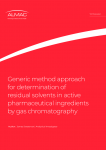Astellas begins phase 3 trial of fezolinetant for VMS in breast cancer

The first patient has been dosed, marking a significant step in addressing the needs of a patient population that currently lacks approved treatments for moderate to severe VMS.
Breast cancer remains the most common cancer among women worldwide, with approximately 2.3 million new cases reported in 2022. Adjuvant endocrine therapy, which includes treatments like tamoxifen and aromatase inhibitors, is commonly used to treat hormone receptor-positive breast cancer. However, up to 97% of these patients experience VMS, including hot flashes and night sweats, as a prominent side effect of their treatment. These symptoms can significantly affect the quality of life and treatment compliance, underscoring the need for effective management options.
Marci English, vice president, head of biopharma development at Astellas, explained the importance of this trial, she said: “VMS can adversely affect quality of life, as well as compliance with treatment, for patients with breast cancer taking adjuvant endocrine therapy. We are excited to get the Highlight 1 study underway, as currently there are no approved treatments for moderate to severe VMS that can be used by these patients.”
The Highlight 1 study is a randomized, placebo-controlled, double-blind phase 3 clinical trial designed to evaluate the efficacy and safety of fezolinetant for the treatment of moderate to severe VMS in women with stage 0 to 3 hormone receptor-positive breast cancer receiving adjuvant endocrine therapy. Approximately 540 participants are expected to be randomized 1:1 to receive either fezolinetant or placebo at up to 100 sites globally.
The study’s four co-primary endpoints will assess the change in frequency and severity of moderate to severe VMS from baseline to weeks 4 and 12. Participants will receive treatment for 52 weeks, with a final evaluation scheduled for 55 weeks.
Fezolinetant is an investigational oral medication that targets neurokinin B (NKB) binding on the kisspeptin/neurokinin/dynorphin (KNDy) neurons. This mechanism is thought to restore balance in the brain's temperature control center, the hypothalamus, thereby reducing the number and intensity of hot flashes and night sweats. However, the safety and efficacy of fezolinetant have not yet been established in the breast cancer patient population.
As the Highlight 1 study progresses, Astellas aims to address a significant unmet need for women with breast cancer experiencing VMS due to adjuvant endocrine therapy. The successful development and approval of fezolinetant could provide a much-needed treatment option for this patient population, improving both their quality of life and their ability to continue with essential cancer therapies.






















